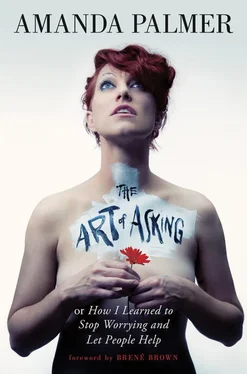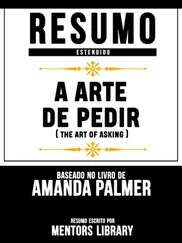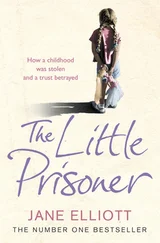A balanced artist knows when to hide in The Garret, when to throw the windows open, and when to venture out into the hallway to the kitchen, where society exists. Most important is the understanding that there are no rules—what works on one day, for one song, won’t work the next.
Once the art is finished there is a new challenge. Down to the ground floor and out the front door, you have the marketplace. It’s loud down there. The stalls of exchange, the sound of bargaining and bartering and clanging cash registers. It’s crass and mundane compared to The Garret—no matter what your version of The Garret looks like—where the art gets dreamed up.
Some artists need to create in complete peace, but all artists are now empowered by technology to open the front door and chronicle their backstage and behind-the-scenes working processes. More importantly, they’re equipped to distribute the work themselves, sharing their writing, their music, and their digitally reproducible wares infinitely and at their own will—without printing presses, without CD manufacturers, without movie theaters. The art goes from the artists’ lips or pen to the audiences’ ears and eyes. But in order to share directly, the artist still has to leave The Garret and head down into the bustling marketplace, and that’s the catch: the marketplace is where you have to deal with people . To many artists, people are scary.
In The Age Of The Social Artist, the question echoes everywhere: what about the introverted or antisocial artists who have no desire to leave The Garret and enter the marketplace? What about the singers who don’t want to tweet, the novelists who don’t want to blog? What will happen to the reclusive J. D. Salingers of the world?
The marketplace is messy; it’s loud and filled with disease and pickpockets and naysayers and critics. For almost any artist, carrying your work through the stalls of exchange can be painful.
But there is another option, which is to yell from your window. You can call down to your potential friends outside, your comrades in art and metaphor and dot-connecting, and invite them to a private party in your garret.
This is the essence of crowdfunding.
It’s about finding your people, your listeners, your readers, and making art for and with them . Not for the masses, not for the critics, but for your ever-widening circle of friends. It doesn’t mean you’re protected from criticism. If you lean out that window and shout down to find your friends, you might get an apple chucked at your head. But if your art touches a single heart, strikes a single nerve, you’ll see people quietly heading your way and knocking on your door. Let them in. Tell them to bring their friends up. If possible, provide wine.
If you’re not social—and a lot of artists aren’t—you’ll have a harder time. Risk is the core cost of human connection. In most cases, the successfully independent antisocial artist pairs with an advocate to shout the message down to the street. Sometimes it’s a record label. Sometimes it’s a patron. Sometimes it’s a best friend.
Art and commerce have never, ever been easy bedfellows. The problems inherent in mashing together artistic expression and money don’t go away, they just change form. Nowadays a lot of apples get chucked at artists who try to get help through crowdfunding: Stop self-promoting. It’s shameless! Those words poke at the emotions most artists are already struggling with. That fear of being called shameless is what makes us think twice about sharing our work with ANYBODY in the first place.
No art or artist exists in a vacuum. Although artists may have access to all the latest social media tools, it doesn’t necessarily mean they’re all eager to use them. At least now there is a choice: you can either leave The Garret, or you can invite everybody in with you, or you can send somebody out on your behalf to round up your crowd and drag them up the stairs.
A warning: With every connection you make online, there’s more potential for criticism. For every new bridge you build with your community, there’s a new set of trolls who squat underneath it.
• • •
I was in the study, sharing an evening grok with Anthony, depressed and bitching to him about the Problem Of Neil. My Kickstarter was delayed and I was facing the looming cash shortage. He was offering to help, and I wouldn’t bend.
What is it you’re so afraid of? Anthony asked. What do you think is going to happen?
I don’t know. I guess I’m just afraid it’s going to bite me in the ass. At some point in our relationship he’s going to slam a door and scream, “BUT I LOANED YOU ALL THAT MONEY, YOU UNGRATEFUL BITCH.”
That sounds very unlike Neil , Anthony said.
I know , I said. I’m not saying my fears aren’t totally deluded .
He isn’t the problem, beauty. You are. You preach this whole gospel of asking and accepting help, you make your friends hitchhike with you, you sleep on all these couches, but you’re holding out on your own husband, who wants to help you. You somehow don’t want to give him the gift .
I sat there, smoldering, then I tried to switch topics.
I just never expected that I’d wind up with a shy, British writer sixteen years older than me. You know?
Well , Anthony said, you did. You know, I remember asking you, a few years before you met him, what you were looking for in a partner. You said “I want an expert.” You got one. He’s an expert in making things up .
But he can’t dance, Anthony. Like, not even a little. And when he tries, he kind of goes into a panic , I said.
So what? said Anthony.
So… I miss dancing. And ANOTHER THING , I said. He doesn’t go to bars. And he can’t drink more than a glass or two of wine without getting obnoxious or falling asleep. AND…
But you drink and dance with everybody else , said Anthony. What are you trying to accomplish here?
Why did I marry this guy? I asked.
I don’t know , said Anthony. You tell me. Because from where I’m sitting, you’re just not that into him .
That’s not true!!
So why didyou marry him?
I thought hard. Anthony was not going to accept a bullshit answer.
I think I married him because… I love him?
Nice dodge, beauty. Why do you love him?
Because… he sees me?
Does he?
Yeah, I think he actually really does. I think he really, really does .
As I said it, I realized it was true.
And also… I think I see him. It’s dark in there, he hides so much. But I see him. And… I don’t know , I said with a shrug. I think that’s enough .
Anthony looked at me. I felt like a disappointment. I didn’t expect my vague answer was going to cut it.
Then he smiled.
You’re turning out good, my girl. You’re getting it .
• • •
Conditional love is:
I will only love you if you love me .
Unconditional love is:
I will love you even if you do not love me .
It’s really easy to love passing strangers unconditionally.
They demand nothing of you.
It is really hard to love people unconditionally when they can hurt you.
• • •
It finally got to the point where I couldn’t put it off. I was down to the wire, about to launch the Kickstarter, but I needed to make sure everybody got their paychecks on time. I needed a loan to bridge the gap. I weighed my options. I sat paralyzed for a few days, battling the imaginary voices in my head.
Читать дальше












